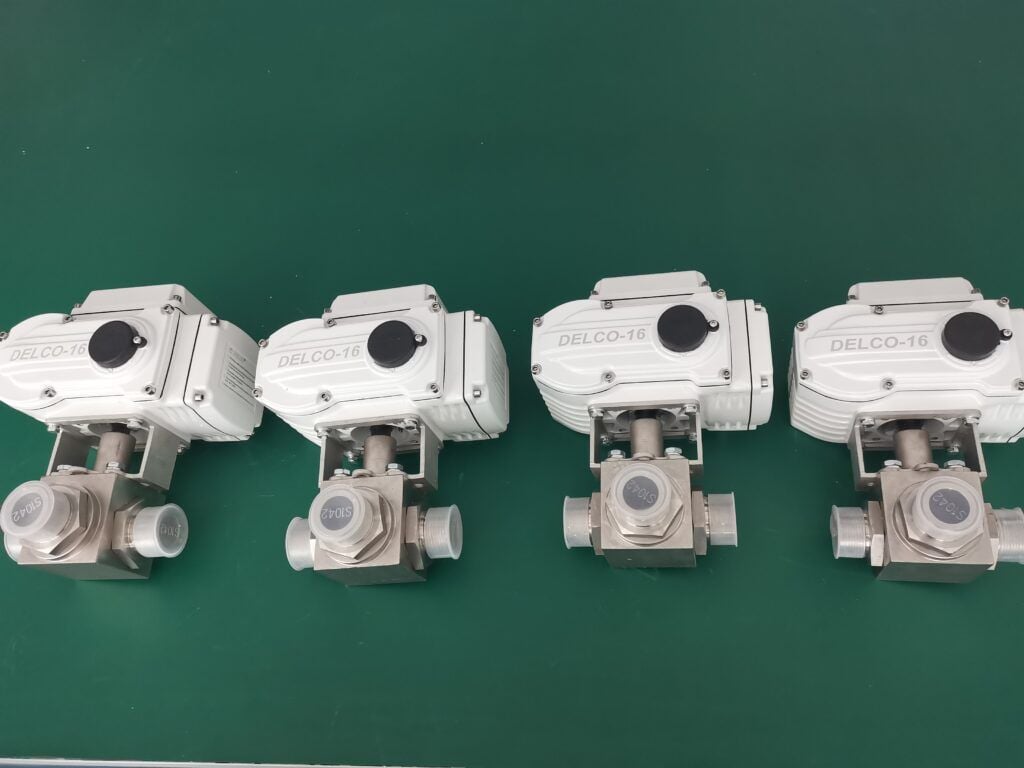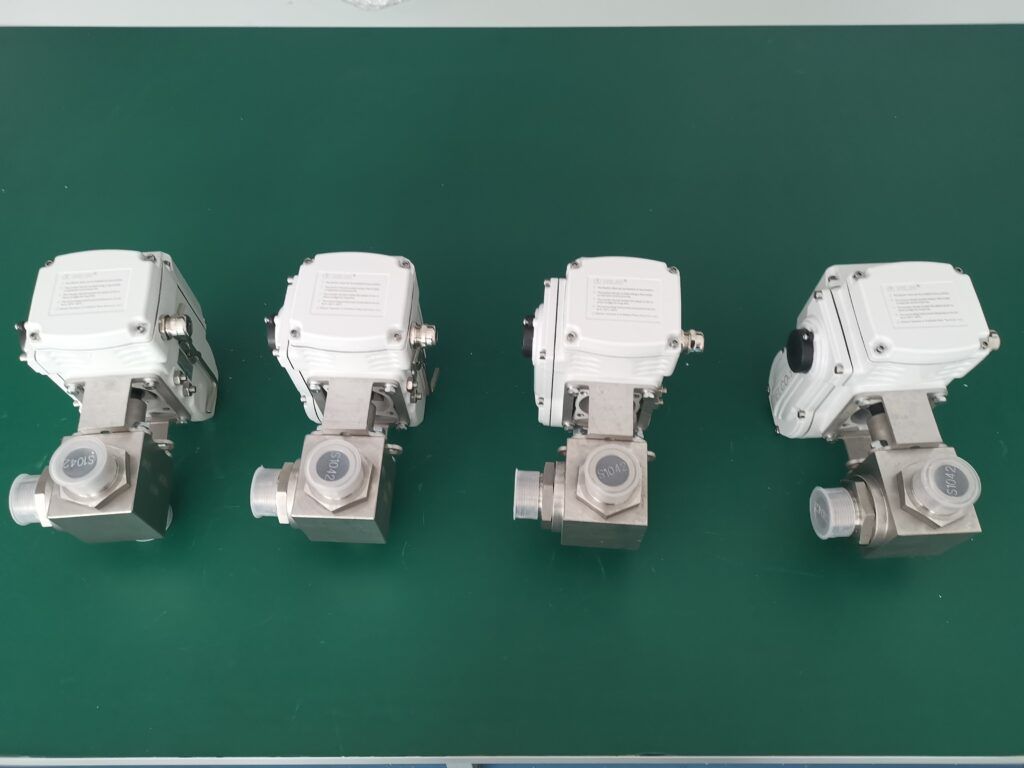標籤
聯絡我們
高壓電動閥的主要類型及其用途
- 晨江
High-pressure electric valves play a crucial role in regulating the flow of liquids, gases, and other media, widely used in pipelines, storage tanks, and other equipment. Selecting the appropriate type of high-pressure electric valve depends on specific application needs. This article will explore various types of high-pressure electric valves and their suitable scenarios.
What are High-Pressure Electric Valves?
High-pressure electric valves are specially designed devices that control and regulate the flow of liquids, gases, or other media under high pressure using electric actuation. These valves typically withstand pressures much higher than standard valves, ensuring safety and reliability under extreme conditions. High-pressure electric valves are commonly used in various industries, including oil and gas, chemicals, food processing, and water treatment.
Key Functions of High-Pressure Electric Valves:
- Flow Control: Adjust the flow rate of the media to ensure the system operates smoothly.
- Isolation: Completely shut off the fluid flow when necessary, protecting the system’s integrity.
- Pressure Relief: Automatically release pressure when it exceeds set limits to prevent equipment damage.
The design of high-pressure electric valves often considers corrosion resistance, wear resistance, and stability under high temperatures and pressures to meet the demands of complex operating conditions. Choosing the right high-pressure electric valve is essential for maintaining system efficiency and safety.
Key Considerations When Selecting High-Pressure Electric Valves
Media Type: Assess the properties of the flowing media, such as corrosiveness or whether it is a gas.
Application Scenario: Ensure the valve size matches application requirements. Understanding environmental conditions like temperature, flow rate, and pressure helps in selecting the best valve.
Valve Functionality: Determine the operational mode of the valve, whether for on/off control or flow regulation, and if manual or automated control is needed.
Actuation Method: Choose the actuation type based on requirements, including electric actuation capabilities and control options.
Common Types of High-Pressure Electric Valves
At DELCO, we offer a variety of high-pressure electric valves to meet different application needs:
電動球閥: Capable of handling pressures up to 21,000 psi, these valves are ideal for applications requiring high flow control.
Electric Globe Valves: Designed for precise flow regulation, suitable for various temperature and pressure applications.
Electric Control Valves: Used for accurate control of flow rates, making them ideal for processes sensitive to pressure changes.
High-Pressure Electric Check Valves: Ensure one-way fluid flow to prevent backflow, essential for high-pressure systems.
Electric Needle Valves: Provide precise flow control under high pressure, suitable for applications that require fine adjustments.
High-Pressure Electric Relief Valves: Protect systems from overpressure, offering excellent pressure control capabilities.
Low-Temperature Electric Valves: Designed for environments as low as -423°F, suitable for high-pressure nitrogen injection applications.
Electric Actuated Shutoff Valves: These valves provide reliable isolation of fluid flow and can be configured for various operational needs.
Advantages of DELCO High-Pressure Electric Valves
Since 2005, DELCO Valve has been committed to providing high-quality high-pressure electric valve solutions. Our products offer various valve body styles and high-performance designs, ensuring stability across various temperatures and pressures, meeting the stringent requirements of food processing, oil and gas, and more.
By partnering with DELCO Valve, you will receive customized high-pressure electric valve solutions tailored to your needs. To learn more about our products, please visit our high-pressure electric valve catalog or contact us directly.
With this information, you will be better equipped to select the high-pressure electric valve that meets your needs, ensuring your system operates efficiently.



